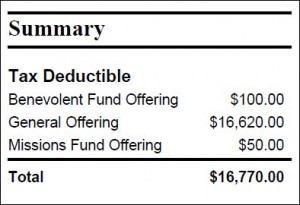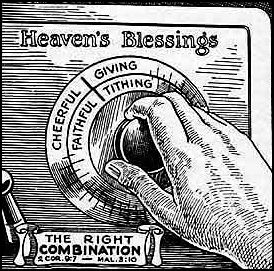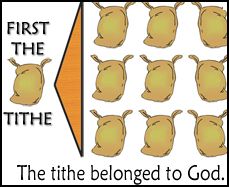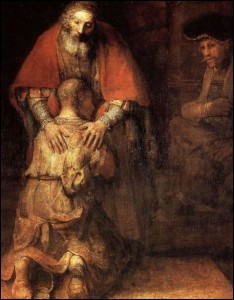The Lord of Heaven’s Armies confronts His people with their lack of trust in Him and respect for Him as they offer blind, diseased, and crippled sacrifices  to Him. This is no way to honor, respect, and revere the Lord of Heaven’s Armies. But in Chapter 2, verse 2, he points out that much of the blame for these irreverent offerings belong to the priests who accept them. This is what Malachi says to the priests, “If you will not listen, if you will not take it to heart to give honor to my name, says the LORD of hosts, then I will send the curse upon you … because you do not lay it to heart.”
to Him. This is no way to honor, respect, and revere the Lord of Heaven’s Armies. But in Chapter 2, verse 2, he points out that much of the blame for these irreverent offerings belong to the priests who accept them. This is what Malachi says to the priests, “If you will not listen, if you will not take it to heart to give honor to my name, says the LORD of hosts, then I will send the curse upon you … because you do not lay it to heart.”
The Priests and Levites were charged with teaching the truth of God’s Word and to live it as an example for the people. Malachi says, “For the lips of a priest should guard knowledge, and people should seek instruction from his mouth, for he is the messenger of the LORD of hosts. But you have turned aside from the way. You have caused many to stumble by your instruction. You have corrupted the covenant of Levi, says the LORD of hosts…” Malachi charges the Priests and Levites of using their positions for personal gain. They accept inadequate offerings and take graft for doing so. And they keep it all for themselves. The Covenant with the Levites specifically says, “When you take from the people of Israel the tithe that I have given you from them for your inheritance, then you shall present a contribution from it to the LORD, a tithe of the tithe.” (Numbers 18:26)
Those of us who make our living from the sacrificial giving of God’s people are not only required to give as well, but to give “the first part & the best also.” The offering from the Lord’s servants was considered exceptionally holy. Woods, in his commentary on the above verse says, “The Levites tenth given to the LORD as an offering is properly designated the best and holiest part. After the Levites had offered a tenth, the remainder was theirs, reckoned for them as ordinary agricultural product without restrictions upon its consumption or disposal. If a Levite properly offered the holy tenth, he would not be guilty as he consumed the remainder. If a Levite failed to give the holy offering, his eating would defile the holy offerings…” If I don’t give the first tenth of my income to the Lord, I would be like the Priests & Levites that Malachi was addressing & my offerings would be defiled. I take this seriously (“lay it to heart”) and openly share with anyone our family giving statement for 2010 – well over 10%! (see today’s devotion at www.chucklarsen.com.) Thus, we enjoy our home, our food, our toys etc. with a clear conscience and have prospered wonderfully because of it. Plus, it frees me to teach the truth of biblical tithing, as I believe God’s Word teaches it.
Chuck
“…see that you excel in this act of giving also.” 2 Corinthians 8:7






